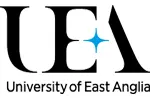We're moving! This site will be relocating to goingto.university in 2026. Please update your bookmarks to the new address.


the United Kingdom
University of East Anglia (UEA)| The award | How you will study | Study duration | Course start | Domestic course fees | International course fees |
|---|---|---|---|---|---|
| PGCE | Full-time | - | - | - | - |
Study
The 11-16 years group is an interesting, often demanding, but tremendously rewarding age group to work with as your pupils become adults from early adolescence to adulthood. The course is designed to equip you to teach your main subject and to also make an effective contribution to the work of schools beyond your subject.
Structure
Teaching employs a range of teaching methods and group sizes, including lectures, seminars and practical workshops. Work based in schools is across all three terms with final teaching placements in the spring and summer terms. University-based sessions will be held in Norwich, a location widely regarded as one of the most attractive and friendliest, happiest cities to live and study in Britain. The campus is set in extensive parkland, yet just 15 minutes from the city centre, and the distinctive architecture is nationally acclaimed, one of its buildings being the most green in the country.
Teaching
The School of Education and Lifelong Learning is one of the top teacher training institutions in the United Kingdom. The School is a leading centre for research and teaching in education, offering a distinctive range of programmes at Postgraduate level with a diverse community of practitioners, scholars and academics who teach, research, and provide professional development.
Employability
UEA teacher trainees achieve a very high success rate in gaining employment, many opting to stay in Norfolk and Suffolk. Career opportunities within secondary teaching are now far wider and more diverse than before. Within a few years of beginning teaching many are able to gain promotion to leadership positions, such as becoming a Leading Practitioner, contributing to school improvement, progressing onto Assistant Head Teacher, Deputy Head or, top of the ranks, Head.
Applicants are required to have an appropriate good honours degree (preferably 2:2 or above) or its equivalent by the beginning of the PGCE programme in September. As a general guideline, approximately 50 per cent of the degree should be relevant to the subject you will teach. Candidates should also ensure that on their application form they are able to demonstrate that they have gained recent experience with children of the relevant age range in the mainstream school environment.
Below are some suggested courses at other providers that you may also be interested in:
Double Bachelor in Economics and Philosophy of Economics BA/BSc Combined Honours
Erasmus School of Economics, Erasmus University Rotterdam
Find out moreProfessional Certificate of Competency in Project Management for Engineers & Technicians Professional Certificate
Engineering Institute of Technology
Find out moreIf you do not meet the entry requirements for this course then consider one of these postgraduate preparation courses from another institution:
Graduate Diploma of Engineering (Civil: Structural)
Engineering Institute of Technology
Find out moreThere are 413 other courses listed from University of East Anglia (UEA). A selection of these are displayed below:
Adult Literacy, Lifelong Learning and Development: International Perspectives MA
University of East Anglia (UEA)
Find out moreJoin the StudyLink email list and never miss a chance to turn your study abroad dreams into reality!

Find out more about studying in the United Kingdom